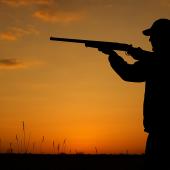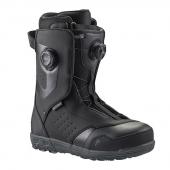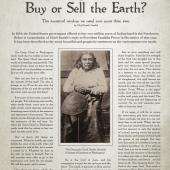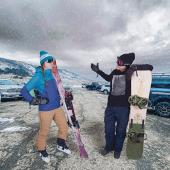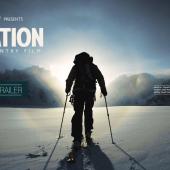Shredded
Interviewing biologist turned pro snowboarder turned filmmaker: Jennifer Grace.
When Jennifer Grace gave up a lucrative career as a biologist to become a professional snowboarder, she defied all conventional wisdom. Not only would pursuing her dream take a heavy toll on her finances, but at 23 the self-described “downhill junkie” was already considered old for a beginning athlete.
Inspired by the successes of older snowboarders like Sondra Van Ert, one of the most accomplished winter athletes in the U.S., Grace went on to compete on the World Cup circuit for six years and became the first snowboarder ever to represent Ireland in the World Cup and the World Championship.
Now a Bozemanite and graduate student in filmmaking at Montana State University, Grace is enjoying successes of a different kind. Her first documentary, Breaking Boundaries: The Sondra Van Ert Story, only had a $15 budget but received rave reviews and was selected to tour with the 2007-2008 Lunafest, a national film festival that promotes women filmmakers.
Outside Bozeman talked to Grace about taking risks, fearing failure, and ultimately falling out of love with competitive snowboarding.
O/B: After graduating from college, you got a great job at the Los Alamos National Laboratory in New Mexico. What made you risk everything to take the plunge into competitive snowboarding?
Grace: I was 23 and made more money than I would ever dream of making now. It was a nice place to work, but I still felt like I was selling my soul to the devil because I was caving in to the pressure of living up to other people’s expectations of me. I felt I had a talent as a snowboarder and needed to do something with it. At the same time, I faced a lot of pressure from my family to stay with biology. I finally decided that I’d never have another chance in life to become a professional snowboarder.
O/B: You moved to Lake Tahoe to have a go at it. What happened?
Grace: I knew I was fast, but I’d never been on a racing board. I wanted to compete on an amateur level but I didn’t really know what was out there. For me it was one giant exploration and a series of mishaps. I had to work three jobs to pay for my training with the Squaw Valley Snowboard Team and I lived in a cabin with no heating. Snowboarding is an expensive sport to get into and I didn’t have any support from my family, so I struggled. The biggest challenge was to have the confidence to continue. I was in my 20s and competed against 14-year-olds who were kicking my butt.
O/B: Did your family ever come to terms with your decision?
Grace: My mom was pretty supportive, but it was hard for her to see how much I struggled. My dad never "got" it and that’s sad because he died two years ago. He was the one person in my family who taught me to take the path less traveled, but then when I did he didn’t approve of it. I think he worried about me not being able to support myself.
O/B: Once you started racing on the international snowboard circuit, you decided to represent Ireland—not exactly a country that’s renowned for its winter sports. Why?
Grace: My dad's parents were from Ireland and I have dual citizenship, so I had the choice to race for either the U.S. or Ireland. I decided to race for Ireland because nobody had done that before. But I knew it would be difficult because there was no team or support system in place. I was the only rider from Ireland and I did a lot of competing by myself. Not only was I the snowboarder, I was also my own doctor, coach, wax tech, and team manager. There’s a lot of work to be done when you’re competing at that level.
O/B: Qualifying for the 2006 Winter Olympics in Italy was one of your longtime goals. Why do you think you failed?
Grace: I think there were a couple of things at play. I was a good snowboarder and athlete but I found that I missed a head for competition—a racer’s head if you will. I was more of a "finesser," a technically sound, smooth rider. The second disappointment was that the International Olympic Committee put some bizarre criteria on the qualification process for snowboarders. In cross-country skiing, for example, every country gets to send at least one man and one woman to the Olympics, but to qualify as a snowboarder you have to place among the top 25 in the World Cup, which is pretty hard to do. I was 26th, so I was just one spot out.
O/B: How did you deal with the disappointment?
Grace: For four years, the Olympics were the only thing I had focused on and it became such a job that at the end of the qualifying season I didn’t even want to ride anymore. I wanted to have fun snowboarding, so I decided not to compete anymore. It was heartbreaking at first, but when I look back at it, not qualifying for the Olympics was probably the best ting that could’ve happened to me. I had to salvage something out of the experience, so I was forced to reflect on my journey although I hadn’t met my goal. If I had made the Olympics I might have missed that opportunity.
O/B: Your husband, Steve Persons, is the head coach for the U.S. Snowboarding Team. How did he react when you decided to retire?
Grace: He was so supportive of it. He saw that a lot of times I wasn’t having a lot of fun. Steve also knew that I was "sick of myself." As an athlete, you’re the center of your own attention; everything you do revolves around you. And you have to be that way to be successful. I wanted to do something about the bigger issues in the world, and Steve really supported that.
O/B: After missing the Olympics, you enrolled in MSU’s graduate program in science and natural history filmmaking. In what way have your experiences from snowboarding helped you as a filmmaker?
Grace: When things get difficult in filmmaking I don’t freak out. Snowboarding has given me a mental toughness, ability to cope with difficult and changing situations, and willingness to pursue seemingly impossible goals. Plus, I’m not afraid to fail (laughing). I’ve failed so many times in front of hundreds of people and on national TV, and I’m still here. I had a huge fear of failing even last year when I was trying to qualify for the Olympics, but I’ve learned that you live through it and that it can even be kind of fun.
O/B: Your first short film, Breaking Boundaries: The Sondra Van Ert Story, was shown at the Emerson during the Bozeman Lunafest last March and was later selected to tour 100 cities with the national 2007-2008 Lunafest. What did that mean to you?
Grace: I was so excited and so nervous the day they showed my film that I nearly passed out, and I’m so grateful of the Bozeman Luna Chix (the group that hosts the local Lunafest) for giving me the confidence to submit my film to the national Lunafest. I couldn’t believe it when it got accepted, and I still can’t believe it. It gave me a huge boost of confidence, which is critical in anything you do. And having successes like that looks great on your resume.
O/B: At one point in the film, Van Ert says that when female athletes reach a certain age, society expects them to find a “real job” and a husband instead of staying in professional sports. Did you ever come across those attitudes when you started racing at age 25?
Grace: I didn’t notice it personally, but in sports in general. My take on it is that many women feel society has a very strong reproductive focus. I think being a mom is great—I’m not one yet but I’m not opposed to it—but not every woman should be expected to go that route. And women now are able to have kids later and have longer careers as athletes.
O/B: What did you learn from your own snowboarding experience and from Van Ert’s career?
Grace: I’ve learned not to compare myself to other people; too many athletes put their self-worth in their results. Everybody has a different background and a different talent, and the only thing that matters is that you do your best. We face a lot of boundaries in life that are put there by social factors, and even though it’s hard to be the first one to break through them, it’s worth it. What if Sondra [Van Ert] would’ve stopped racing when people told her she was "too old"?
O/B: Recently, the Smithsonian Institute commissioned you to make a film about the threat against amphibians from contaminants in our water. Are environmental issues important to you on a personal level?
Grace: Definitely. I started supporting the WWF and Greenpeace when I was 12 years old and gave them all my babysitting money. I think what we’re going through right now is really frightening. We’re currently experiencing the largest species extinction since the age of the dinosaurs, and half of all amphibians are threatened by extinction.
O/B: In hindsight, would you still have made the decision to pursue your snowboarding dream at 23?
Grace: Absolutely. I had a really good time, getting to snowboard all over the world. I would still love to do some races here and there but it’s too expensive and I’m a broke grad student now. But I sometimes miss the feeling of a really good run and a really fast turn.
Shred, Betties!
If you’re looking for some like-minded babes on boards, checkout shredbetties.com. This site is loaded with content, from dozens of feature articles on various topics to short films dedicated to the humor and lifestyle of snowboarding women. There’s also a blog, a calendar of nationwide events, and a photo gallery of girls catching big air and sticking sick tricks all across the country. The Shred Betties support riders of all levels, from newbies to professional riders; so the site’s got something for everyone.







